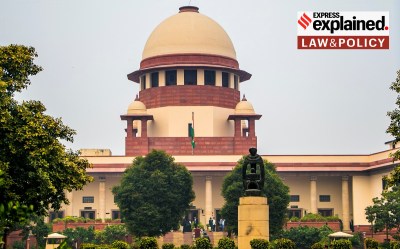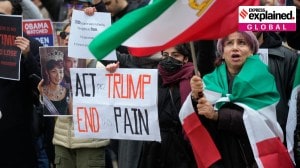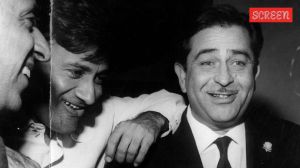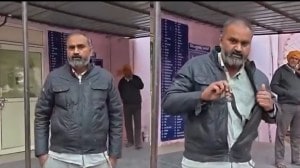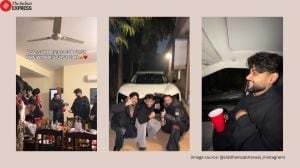A requiem for Dange
quot;A good man but a bad communist,quot; I remember a communist leader remarking about CPI chairman Sripad Amritpad Dange way back in ...

quot;A good man but a bad communist,quot; I remember a communist leader remarking about CPI chairman Sripad Amritpad Dange way back in 1964. Dange, the only communist leader who had the courage to proclaim, quot;I am a communist,quot; in the Meerut Conspiracy Case 1929-33, would have hated the second part of the remark. But this was just after the Communist Party of India had split and the CPIM top brass was going at Dange hammer and tongs, accusing him of being a British collaborator and a Congress stooge.
If he could hear CPIM leaders like Jyoti Basu and Harkishen Singh Surjeet advocating support to a Congress-led government, Dange would have had the last laugh. And he would have quoted Lenin: quot;A good nationalist is better than a bad communist.quot;
Support the Congress, that was Dange8217;s line. He contended that the national bourgeoisie was the natural leader in the struggle against imperialism and feudal reaction. He warned that if the communists did not support Indira Gandhi. They would be responsible for thetakeover of the country by the imperialists and their stooges the Jan Sangh, the RSS etc..
The Surjeets and Basus, who once accused him of adopting the path of class collaboration, are now using Dange8217;s prescription for social health. Communalism threatens our social and political life and the BJP-RSS combine is responsible for it. So snatch power from them and hand it back to the Congress.
Why now? It doesn8217;t seem to bother today8217;s communists. Admittedly, the sangh parivar represents communalism at its worst. But who is responsible for its growth? The Congress created the right conditions. The communists gave it legitimacy by bedding with almost everyone, including the BJP and its earlier incarnation, the Jan Sangh, in their blind anti-Congressism.
To argue that the conditions have changed is less than clever. Dange would have said that there would have been real change had his advice been heeded. The feudal reaction was a problem then and Dange argued for a united front with the Congress to fightit. Now Surjeet and Basu are suggesting the same thing.
This is not the first time the Indian communists are confused. Up to 1934 the CPI branded the freedom struggle as a movement of the reactionary bourgeoisie. When the Comintern adopted the Gregori Dimitrov thesis of Front Populaire against war and fascism in the mid-8217;30s, it changed tack and climbed on the Congress bandwagon. Communist leaders like Sajjad Zaheer, Soli Batliwala, Dinkar Mehta and E.M.S. Namboodiripad became members of the national executive of the Congress Socialist Party.
The line was changed again during World War II when, theorising from their support of the Nazi-Soviet honeymoon 1939-40 and then the so-called People8217;s War Policy8217; 1941-42, the communists rejected Gandhi8217;s call for swadeshi.
Independence found their confusion confounded. B.T. Ranadive8217;s quot;Yeh azadi jhoothi haiquot; this freedom is fake thesis suggested an ultra-left insurrectionary line. Dange and P.C. Joshi were for reviving the Front Populaire andworking with the Congress. The Ranadive group won the battle at the 1948 Calcutta Congress of the CPI. After the short-lived Telengana experiment, the party line took an about turn with the installation of the centrist Ajoy Ghosh in 1951. The 1964 split was engineered by those who resisted a general united front with the Congress but the CPI under Dange continued to work in tandem with Indira8217;s Congress.
Ultimately Dange was dumped by the CPI also. Like Vyasa at the end of the Mahabharata war, he retreated, muttering, quot;Here I stand alone. My words fall on deaf ears.quot; Today, those ears have become attentive. The ghost of fascism is being revived again and the communists are looking up to the Congress to lead the fight against it. Dange8217;s Keshavsut sums up their dilemma:
You wonder, don8217;t you, who we are/ Darlings of the gods certainly we are!
- 01
- 02
- 03
- 04
- 05


